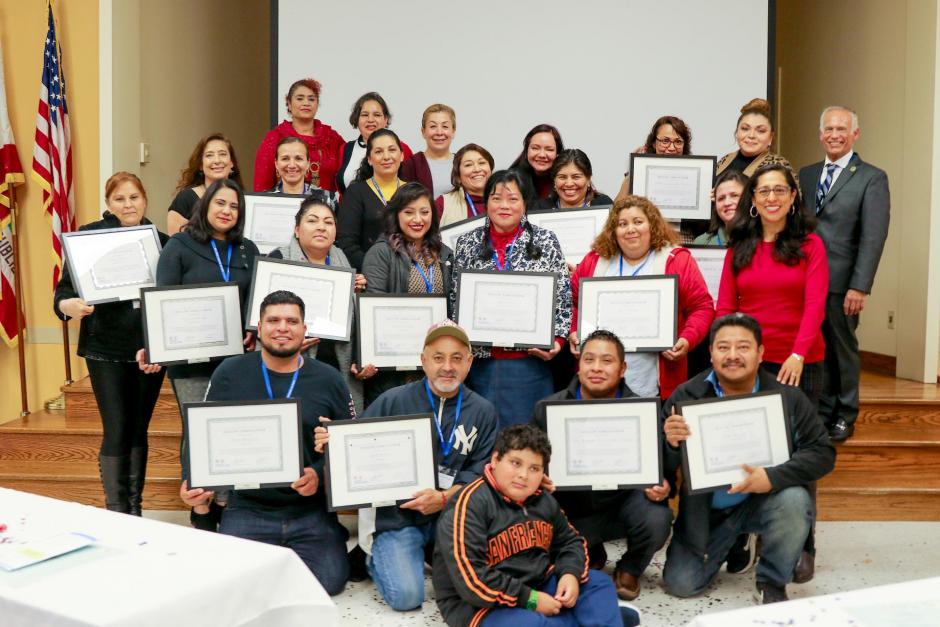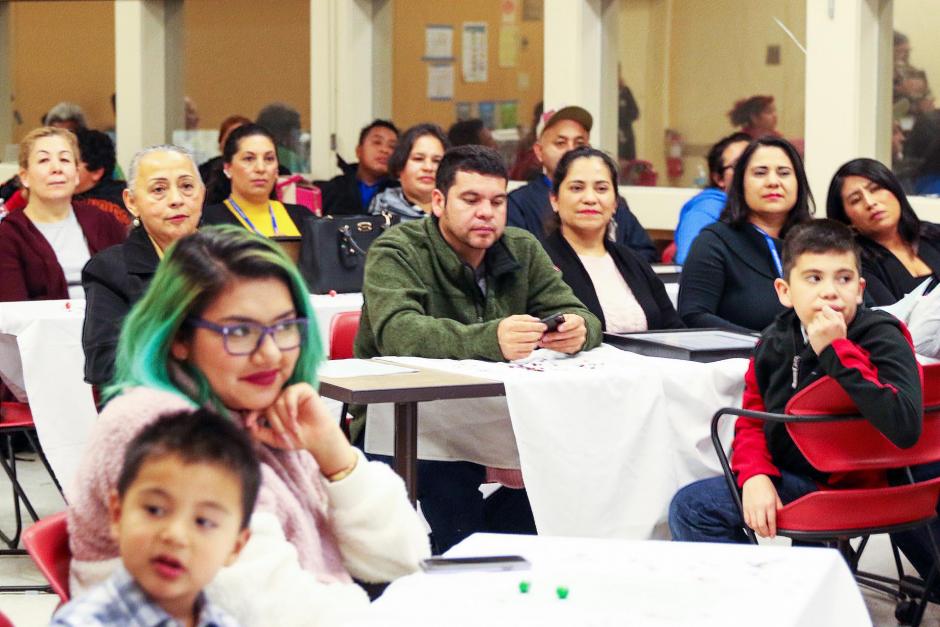Health Ambassador Program Continues to Grow
Empowering local residents to support their communities
This year, a record number of 19 people graduated from the free public education program geared towards improving the health and well-being of individuals in San Mateo County.
The Behavioral Health and Recovery Services (BHRS) Health Ambassador Program (HAP) was created in 2014 to honor the important role that community members play in healing and supporting others in their communities.
For Sandra, a recent HAP graduate, the program helped her bring more trust and peace into her family relationship.
“Because of the changes I’ve made in how I parent, my kids are happier, and they now come to me with their problems,” she explained. “Because of my new perspective, my life and our family life are much more calm, less stressful, and I have a much better relationship with my kids.”
The program is offered by the BHRS Office of Diversity & Equity (ODE) under the passionate leadership of Charo Martinez, who is also a graduate of the program. Since its inception, nearly 50 people have graduated from the Health Ambassadors Program.
What do the participants learn in the Health Ambassador Program?
In the course of the program, participants learn ways to support their family and community members. To do that, they must complete five of the eleven courses offered. The courses include Mental Health First Aid, Applied Suicide Intervention Skills Training, and Wellness Recovery Action Plan (WRAP), taught in both English and Spanish.
One of the courses the participants can take is the Parent Project, a class for parents and caregivers that teaches them about the tools for building stronger healthier families. The learning that happens in the class and program can bring improvements to a family relationship noticeable to parents and children alike.
Sandra’s 19-year-old daughter, Fatima, said that after her mother started attending the program, she noticed how she became closer to her. “Before, I didn’t have a relationship with my mom,” she said. “She was always full of rage and anger and would react explosively.”
Today Fatima said she can approach her mother when she needs to talk to her. “My mom never used to show us any affection or love,” Fatima added. “Now she hugs me and my two younger brothers and tells us she loves us all the time. She became more calm, compassionate, understanding, and supportive of what I want.”
Another example of the courses taken in the Health Ambassador Program is the National Alliance on Mental Illness (NAMI) Family to Family program where trained family members of individuals living with serious mental illness educate and support other families who may be going through similar challenges.
Such an exchange of experience is crucial for families to feel the support and acceptance of the community.
A father attending a training session said that he usually struggles to find a person he can share what it’s like to live with a child who has mental health issues.
“I have never talked about my child’s illness in public because I feel judged,” he said. “Even some family members have alienated us because they don’t understand nor want to know more about our child’s mental and behavioral challenges.”
After one training, he explained that he finally felt comfortable sharing his experience. “I didn’t feel embarrassed tonight because there are people who seem to be living a similar life like mine.”
The courses participants of the program take are a great way to provide education to families that can help them deal with their day-to-day challenges.
A recent graduate shared how the program helped them: “HAP allowed me to learn about various drugs when my son engaged with substance use.”
Another Health Ambassador commented on the benefits of the program by saying,
“Now I understand and can help my daughter in new ways when she needs support while facing bipolar challenges.”
Besides learning the ways to support their family and community members, in the course of the program, participants learn to develop their coping strategies and wellbeing.
For example, Sandra said she began to better manage her expectations from her children. “I learned that every person is different, and I no longer feel the need to control everything my kids do,” she said. “I’m more compassionate and less angry now.”
The learning the program participants undergo also influences the people around them.
Over time, Sandra’s changes have rubbed off on her husband, who was initially reluctant about the program. He said he has seen how after Sandra attended the courses, she started to improve their family dynamics and relationship with their children. Sandra also encourages her extended family and friends to attend the courses and supports them throughout the process.
One father who graduated as a Health Ambassador shared that the benefits of the program went beyond improving his family relationship. With his learnings, he can better support his co-workers with kids as well.
What do Health Ambassadors do after the program completion?
The training sessions provide BHRS Health Ambassadors the ability to take the skills they master and become a voice and support for their community. These ambassadors assist the County in linking individuals to appropriate care, working to ensure that communities are informed about BHRS resources and services and helping BHRS learn more about the communities’ needs.
Many Health Ambassadors become involved in other county endeavors such as: participating in the Alcohol and Other Drugs (AOD) Coalition or on a Health Equity Initiative, attending the Board of Supervisors meetings to learn more about County’s work and support initiatives; collecting community input; and supporting numerous county events, workshops and courses.
Some Health Ambassadors have proceeded to further their development to receive additional training in WRAP, Know the Signs, NAMI Basics, Photovoice, Parent Project® facilitator, Lived Experience Education Workgroup, Mental Health Advocate at ACCESS California; or have found employment as a Family Partner Coordinators at BHRS.
Many graduates say that the program provided them with the motivation and support they needed to help their children, family and communities. As a trusted community member, friend, and family member armed with knowledge and experience, each of them is making a difference in their community.
Learn more about the Health Ambassador Program or contact HAP Coordinator, Charo Martinez at mmartinezresendiz@smcgov.org or (650) 372-6136 with any questions.

